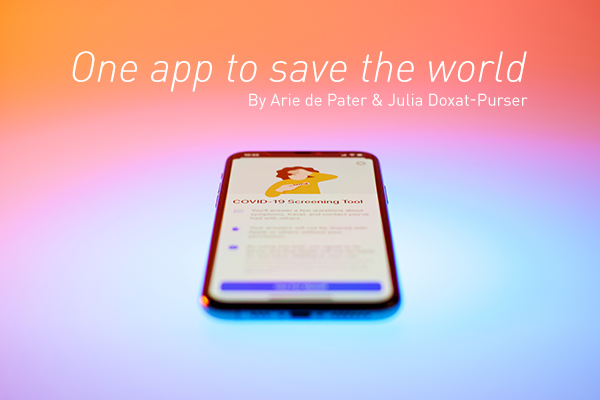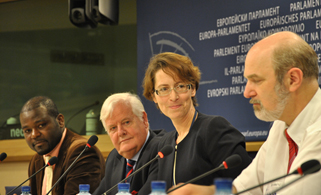By Arie de Pater and Julia Doxat-Purser
The whole world is impacted by Covid-19 and governments are doing what they can to contain the virus and regain some sense of normalcy. That’s important both for their citizens and for their economies. Several countries are deploying apps for mobile devices to monitor the spread of the virus. Are you in?
Most Covid-19 apps are using Bluetooth to monitor whether you have been close enough to somebody else to catch the virus. If that person reports being ill of Covid-19 within the next two weeks, you’ll get an alert and a recommendation to self-quarantine and to get a test when you develop symptoms.
The good
Especially if the majority of the population carries a mobile device with a Covid-19 app activated, the app could help health services to identify and trace people that patients might have contaminated. Patients might recall friends, families or clients they have seen over the last two weeks but won’t remember the people they happened to sit next to on public transport or queuing up with them at the local supermarket. Tracing these people could definitely help in slowing down the spread of the virus. It could save you from unconsciously infecting your beloved ones and the more vulnerable people in your ‘bubble’.
As Christians, we are taught to be responsible citizens and to care for one another, especially the most vulnerable in our societies. So, any tool or measure that could help us to avoid spreading a deadly disease should be appreciated.
The bad
In order to identify people you might have infected, the app will keep a record of persons you have been close to, at least in the last two weeks. That information will be stored somewhere, that could be locally on your device, but also in a big database owned by the authorities or a third-party vendor. This information could be stored indefinitely and used for other purposes, including commercial use.
Most Covid-19 apps are based on some basic software provided by Google and Apple. They’ve promised not to collect or use the information gathered by the software, but it won’t be difficult to change that at some point.
People developing Covid-19 symptoms will have to enter that in the app and the app will subsequently send an alert to all people that have been close enough to long enough over the last two weeks. But what if they claim to be sick while they are not? They will force a group of people to self-quarantine for no apparent reason. That might have huge practical and financial consequences for those falsely alerted.
What if people get a warning that they have been near an infected person but simply choose to ignore the alert, potentially carrying on infecting others?
And what if the person developing Covid-19 symptoms is your neighbour who, although divided by a wall, is indeed in close proximity but whom you never talk to and you did not breathe over?
The verdict
As citizens in general, and as Christians in particular, we feel the responsibility to take care of one another. If the app helps to spread a deadly disease, we should seriously consider using it. The problem is that for the app to be effective, an estimated 60 percent of the population should install and activate it. The downside is that the app comes with some serious privacy risks, will never be completely accurate, and is prone to abuse.
As long as the app is voluntarily, it is quite unlikely we will ever come close to the 60 percent threshold and the added value will be limited. Just keeping the distance and taking the usual sanitary precautions might be a safer bet in stopping the spread of the virus. If that isn’t possible, one could consider using the app, weighing the pros and cons for yourself.












